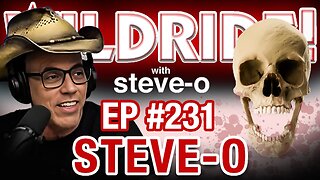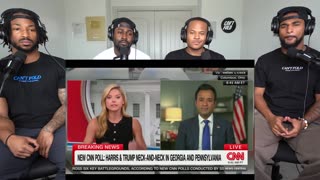Ep 103 N8 Fri 12th Jan Jurisdiction IS Everything
Tonight Liz goes into detail about Jurisdiction - some of the history, how the different courts may or may not have jurisdiction in certain matters and cases. How things work in the US compared to NZ. OSHA ruling that the executive had no legal right to mandate workers which is the same here it just hasn't made it through the courts yet! People got tangled up with judicial reviews and so on
The three branches of govt and how that influences things
Plus as always there's a ton of information in our amazing N8 zooms.
Then we take a look at a brand new Number 8 Rumble Quiz using a special bot which our Anzac N8er has crafted from the Rumble transcripts and Index document - Awesome fun and a very interesting process!
Timeline contents:
1 – 00:00:00
- The main speaker is Liz Lambert, president of the Number 8 Workers’ Union of New Zealand.
- The discussion introduces the topic of jurisdiction - its meaning in legal contexts and importance in courts. It can refer to authority or lack thereof depending on perspective.
- Jurisdiction determines which courts and authorities can hear certain types of cases, like employment institutions for employee matters. Coverage under the Whistle blowers Act 2022 and/or the Health and Safety at Work Act 2015 is available for some contractors, volunteers, defence force and police employees.
- MPs don’t have the employee coverage and should be bought into the employment as defendants. Typically, cases ended up in district and high court, but Liz states the employment institutions had proper jurisdiction over such matters according to employment law.
- How does a country get jurisdiction regarding the court system? Countries usually gain jurisdiction through establishing sovereignty, occupation or war.
- In New Zealand's case, sovereignty was transferred via the Treaty of Waitangi from Māori federation of chiefs to Britain in 1840.
- The most common way for a country to gain jurisdiction is through war and invasion.
- In 1066, William the Conqueror invaded England from Normandy, bringing a new political/legal system of Norman rule and Frankish laws like feudalism.
- He defeated the existing Anglo-Saxon kings and their tribes who had ruled parts of England previously.
- Similarly, the US gained jurisdiction from Britain through the Revolutionary War of 1774 where they fought for independence from British rule.
- After winning wars of conquest/independence, the new ruling powers brought their own laws and political systems, but often retained elements of the previous laws. This is apparent regarding the US with their constitution.
- After centuries of evolution following the Norman conquest, the English monarchy had become a constitutional monarchy by the time of the present royal family, placing limitations on absolute royal power through separation of governing powers.
- Both the US and Commonwealth countries like NZ adopted the English common law tradition and three-branch government model from Britain as the foundation of their legal frameworks.
2 – 00:07:20
Liz discusses the separation of powers between the three branches of government - executive, legislative, judicial - which was instituted to prevent tyranny.
- In 1649, England and Ireland and the dominions thereof became a republic for 10 years known as the Interregnum period between kings. Then the Restoration in 1660.
- In 1688, the British implemented their first codified constitution while retaining prior common laws from before 1066. Magna Carta and 1275 based on the older laws. 1275 is of the Imperial enactments in force in New Zealand under the Imperial Laws Application Act 198.
- Over time, the executive branch has come to dominate the other branches in both NZ and the US.
- The discussion of the US, NZ and English common law is to explain the relevance of the OSHA key US Supreme Court rulings around Biden's COVID workplace mandates from January 2022. The court found as a matter of fact that COVID is not a workplace hazard covered under acts like the US Occupational Safety and Health Act or New Zealand's equivalent Health and Safety at Work Act 2015.
- Parallels are drawn between the acts and protections for workers to refuse dangerous work while still receiving pay, showing similarities in the legal approaches of both countries. NZ is section 83.
3 – 00:14:40
- Criticism of newer NZ lawyers not thinking independently and potentially relying too much on AI for essays.
- The three branches/arms of government are: courts and police enforce laws; executive/crown (Governor General, PM, cabinet & ministry, public service); and parliament who makes laws. They are meant to have checks and balances. The public service sector is the largest, with many potentially held to ransom.
- Recalling the last zoom where Judith Collins’ speech is discussed regarding her saying basically Parliament had let the executive start doing the law making around covid.
- Without section 191 designations, the enforcers lacked legal authority under health and safety laws, as proper designation is required for enforcement powers.
- Reminder that Nash the police minister got the sack Nash for contacting the Police Commissioner to suggest he appeal a court judgement. That's a breach of the Cabinet Manual as ministers aren't meant involve themselves with the courts.
- While politicians are elected, they and the branches of government are meant to serve the people non-politically by obeying the nonpartisan rule of law. As no one is above the law, the English common law sits above the three branches, providing impartial jurisdiction.
- Discussion of two instances where Jurisdiction is important. First in the Amanda Turner case where the employment authority should have had sole authority, not the district court. Second is a case of where the plaintiff took his case to self-represent in district court instead of the employment authority. He didn’t win, the judge had a whole lot to say about whether he could use the Bill of Rights Act, Liz says the judge got it wrong, additionally had no jurisdiction as the case was in the wrong court. Not mentioned in the zoom, but the case referenced is Butler v Shephard [2011] HC AK.
- The US system also has three branches with courts potentially most powerful as they rely on the constitution. Police get elected so may be part of the executive.
- In the US vaccine mandate dispute, courts asserted supremacy over the executive branch due to separation of powers principles. Biden's mandate exceeded the Department of Labor's authority since Congress had not amended labour law to allow mandatory vaccination requirements in workplaces.
4 – 00:24:50
- New Zealand has yet to see high court challenges over vaccine mandates. While judicial reviews aim to evaluate ministerial orders, courts often find the orders were reasonably signed off without scrutinising specific applications. U.S. focuses on authority - the President's mandate exceeded congressional labor law. The OSHA Act and employment law require workplace orders comply with health and safety statutes. Congress traditionally holds most power, but courts assert control too. The crown and presidents party (U.S.) have been pushing other branches around. By comparison, the established principles and precedents within common law provide a stable framework above partisan politics.
- Liz discusses that English common law has administered key precedents like ending slavery in 1807 and conducting the Nuremberg trials.
- Whilst serfdom (economic slavery) existed, chattel slavery did not under English common law. Liz mentions a case of a U.S. slave who jumped ship and regarding the right of an enslaved person on English soil not to be forcibly removed from the country. The mentioned case is Somerset v Stewart [1772] which affirmed English law did not recognise slaves as a legal status or slaves as property. See link for more on the abolition of chattel slavery https://poe.com/s/ecPLUrDpqgzqwx5LnhbR
5 – 00:30:23
Quiz bot exploration re episode 102
CONTENT LINKS
Imperial Laws Application Act 1988, Schedule 1, Imperial enactments in force in New Zealand, Constitutional enactments
https://www.legislation.govt.nz/act/public/1988/0112/latest/DLM135091.html
Jesse Waiariki Temanava Butler v Martin Shepherd Hc Ak
https://nz.vlex.com/vid/jesse-waiariki-temanava-butler-793537537
Section 3 (b) New Zealand Bill of Rights Act 1990 – Application
(b) by any person or body in the performance of any public function, power, or duty conferred or imposed on that person or body by or pursuant to law.
https://www.legislation.govt.nz/act/public/1990/0109/latest/DLM224799.html
Discussion on the Butler case – Matter of Jurisdiction - Ep.96 - 20231129 (W) War on the Wokesters
https://rumble.com/v3ynzuh-e-96-n8-wed-29th-nov-23-wednesday-war-wokesters.html
Somerset v Stewart (1772)
https://en.wikipedia.org/wiki/Somerset_v_Stewart
http://www.commonlii.org/int/cases/EngR/1772/57.pdf
Take the session quiz! Enjoy https://poe.com/N8_Ep103_quiz
-
 1:02:52
1:02:52
In The Litter Box w/ Jewels & Catturd
18 hours agoThe DOJ is Badly Broken | In the Litter Box w/ Jewels & Catturd – Ep. 640 – 9/5/2024
32.6K28 -
 7:10
7:10
Nitrocross
8 days agoNew Tire Tech with Yokohama
13.8K4 -
 LIVE
LIVE
Right Side Broadcasting Network
1 day agoLIVE REPLAY: President Trump Gives Remarks at The Economic Club of New York - 9/5/24
6,324 watching -
 1:30:44
1:30:44
Steve-O's Wild Ride! Podcast
4 hours agoThe Worst (And Best) Ways To Die - Wild Ride #231
15.2K1 -
 2:57:10
2:57:10
The Charlie Kirk Show
4 hours agoTucker On-Set + The Secret Service's LGBT Getaway + Pop Culture Power Hour| Kassam, Crabtree, Clark
139K83 -
 1:08:46
1:08:46
Geeks + Gamers
2 hours agoTeam YouTube Responded. We Won
17.8K4 -
 1:25:33
1:25:33
The Quartering
4 hours agoHidden Video PROVES All Trump Charges Should Be Dropped, Insane Youtube Witchhunt & Downfall Of Woke
66.7K29 -
 26:42
26:42
CartierFamily
3 hours agoVivek Ramaswamy Calmly Dismantles CNN’s Host! 🔥
26.4K39 -
 4:07:38
4:07:38
MissesMaam
6 hours agoNew Stuff!! 💚✨ Coral Island
27.6K4 -
 1:13:57
1:13:57
Russell Brand
6 hours ago“KAMALA’S DICTATORSHIP!” – VP THREATENS Elon Musk & Free Speech, Vows To SHUT DOWN X?! - SF446
145K220